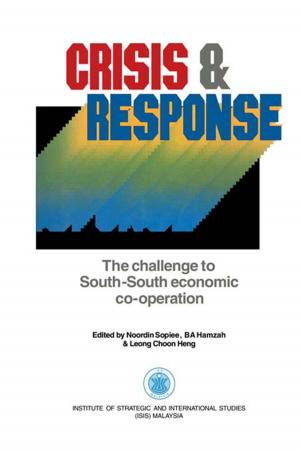| Author: | ISBN: | 9781351307468 | |
| Publisher: | Taylor and Francis | Publication: | April 24, 2018 |
| Imprint: | Routledge | Language: | English |
| Author: | |
| ISBN: | 9781351307468 |
| Publisher: | Taylor and Francis |
| Publication: | April 24, 2018 |
| Imprint: | Routledge |
| Language: | English |
Although television is now dominant, radio surprisingly remains a medium of unparalleled power and importance. Worldwide, it continues to be the communications vehicle with the greatest outreach and impact. Every indicator - economic, demographic, social, and democratic - suggests that far from fading away, radio is returning to our consciousness, and back into the cultural mainstream.Marilyn J. Matelski reviews radio's glory days, arguing that the glory is not all in the past. B. Eric Rhoads continues Matelski's thoughts by explaining how and why radio has kept its vitality. The political history of radio is reviewed by Michael X. Delli Carpini, while David Bartlett shows how one of radio's prime functions has been to serve the public in time of disaster. Other contributors discuss radio as a cultural expression; the global airwaves; and the economic, regulatory, social, and technological structures of radio.Collectively, the contributors provide an intriguing study into the rich history of radio, and its impact on many areas of society. It provides a wealth of information for historians, sociologists, and communications and media scholars. Above all, it helps explain how media intersect, change focus, but still manage to survive and grow in a commercial environment.
Although television is now dominant, radio surprisingly remains a medium of unparalleled power and importance. Worldwide, it continues to be the communications vehicle with the greatest outreach and impact. Every indicator - economic, demographic, social, and democratic - suggests that far from fading away, radio is returning to our consciousness, and back into the cultural mainstream.Marilyn J. Matelski reviews radio's glory days, arguing that the glory is not all in the past. B. Eric Rhoads continues Matelski's thoughts by explaining how and why radio has kept its vitality. The political history of radio is reviewed by Michael X. Delli Carpini, while David Bartlett shows how one of radio's prime functions has been to serve the public in time of disaster. Other contributors discuss radio as a cultural expression; the global airwaves; and the economic, regulatory, social, and technological structures of radio.Collectively, the contributors provide an intriguing study into the rich history of radio, and its impact on many areas of society. It provides a wealth of information for historians, sociologists, and communications and media scholars. Above all, it helps explain how media intersect, change focus, but still manage to survive and grow in a commercial environment.















